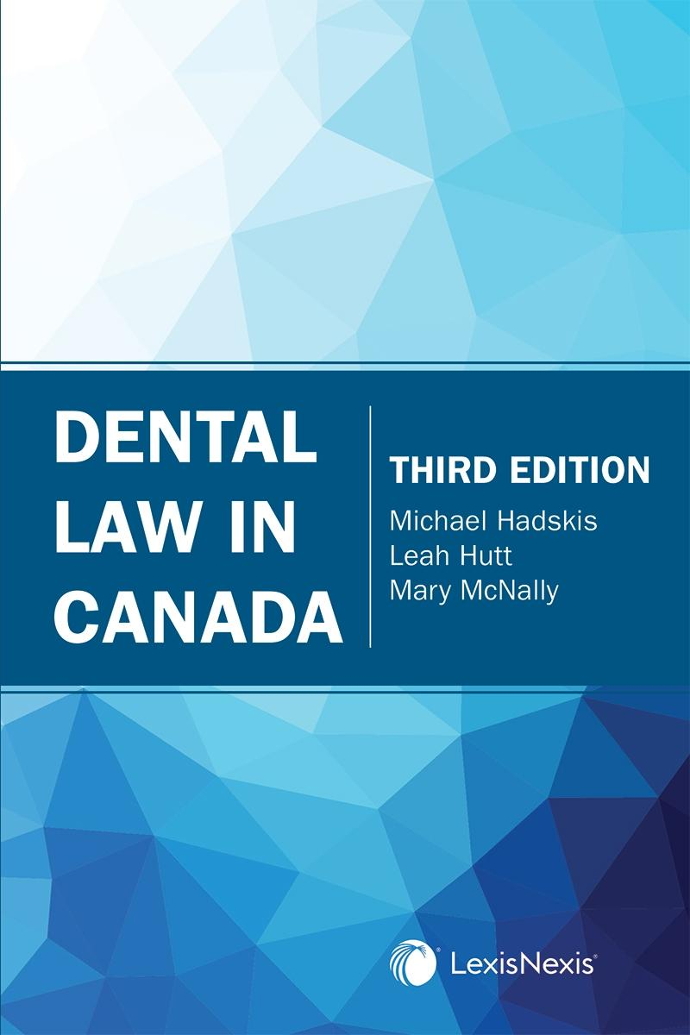
Assistant Professor Tamar Meshel of the University of Alberta Faculty of Law has recently published book chapters in two different areas of her expertise.
Meshel's chapter on dental negligence, appears in Dental Law in Canada, 3rd Edition (Lexis Nexis).
In it, Meshel explains that, "Claims, including malpractice claims, against dental professionals in Canada have generally been on the rise over the last decade. While a relatively small number of such claims proceed to litigation, some out-of-court settlements involve monetary compensation. It is therefore important for dental professionals to understand the conduct and level of care expected of them in the provision of dental services and what is required for a person to prove a malpractice claim."
Her chapter introduces dental professionals to the concept of malpractice claims. It focuses on the civil liability aspects of malpractice under tort law, particularly actions for "negligence" and "battery," as well as ancillary issues related to dental negligence, such as liability of employers and liability of non-patients and third parties. The types of harm that plaintiffs may claim as a result of dental negligence and the types of damages that may be awarded as compensation are also discussed, as well as available defences and alternative dispute resolution options.
Meshel's other newly published chapter is, "The Dual Role of Procedure in International Water Law." It appears in the book International Law and Litigation: A Look into Procedure, an open access project of the Max Planck Institute Luxembourg for Procedural Law.
Writes Meshel: "Of the total amount of water on Earth, only 2.5 per cent is fresh water and only around 30 per cent of this water is available for human use. The rising demand for this finite resource, fuelled by population growth, industrial development, and increasing scarcity, may well result in a global water crisis. Moreover, competing transboundary fresh water demands may lead to interstate disputes."
Meshel's chapter discusses the dual role of states' procedural obligations under international water law to first, assist states in complying with this body of law, and second, to elicit interstate co-operation in the management of shared fresh water resources.